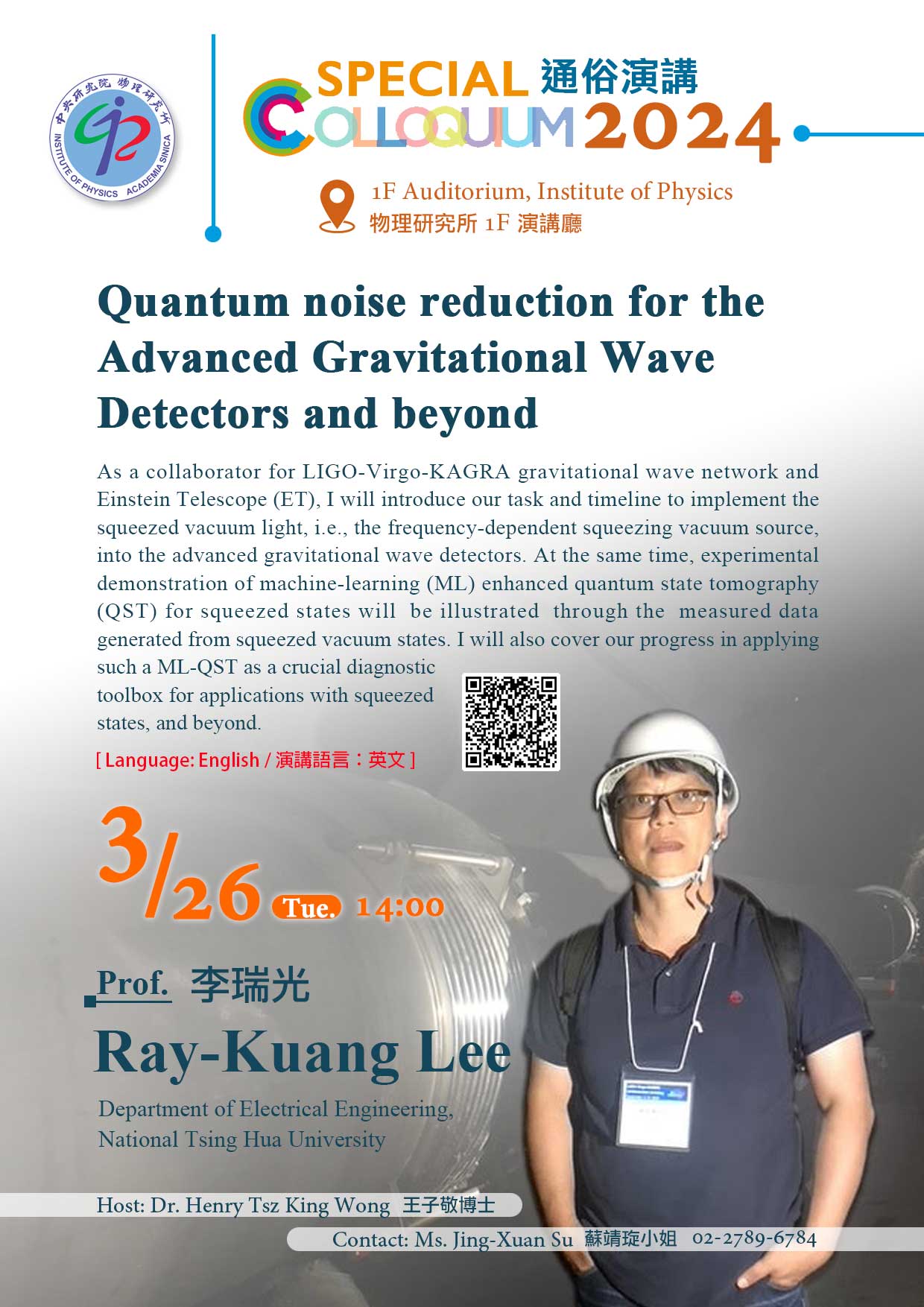- Lectures
- Institute of Physics
- Location
1F, Auditorium, Institute of Physics
- Speaker Name
Prof. Ray-Kuang Lee (Institute of Photonics Technologies, National Tsing Hua University, Taiwan)
- State
Definitive
- Url
https://www.phys.sinica.edu.tw/lecture_detail.php?id=2849&eng=T
【Abstract】
As a collaborator for LIGO-Virgo-KAGRA gravitational wave network and Einstein Telescope (ET), I will introduce our task and timeline to implement the squeezed vacuum light, i.e., the frequency-dependent squeezing vacuum source, into the advanced gravitational wave detectors [1]. At the same time, experimental demonstration of machine-learning (ML) enhanced quantum state tomography (QST) for squeezed states will be illustrated through the measured data generated from squeezed vacuum states [2, 3]. I will also cover our progress in applying such a ML-QST as a crucial diagnostic toolbox for applications with squeezed states [4], and beyond [5s].
Ref:
[1] Yuhang Zhao, et al., "Frequency-dependent squeezed vacuum source for broadband quantum noise reduction in advanced gravitational-wave detectors," Phys. Rev. Lett. 124, 171101 (2020); Editors' Suggestion; Featured in Physics.
[2] Hsien-Yi Hsieh, et al., "Extract the Degradation Information in Squeezed States with Machine Learning," Phys. Rev. Lett. 128, 073604 (2022).
[3] Alexey Melnikov, Mohammad Kordzanganeh, Alexander Alodjants, and RKL," Quantum Machine Learning: from physics to software engineering," Adv. in Phys. X (Review Article) 8, 2165452 (2023).
[4] Yi-Ru Chen, et al., "Experimental reconstruction of Wigner phase-space current," Phys. Rev. A 108, 023729 (2023).
[5] Yi-Ru Chen, et al., "Generation of heralded optical `Schroedinger cat' states by photon-addition," [arXiv: 2306.13011].









 Home
Home

